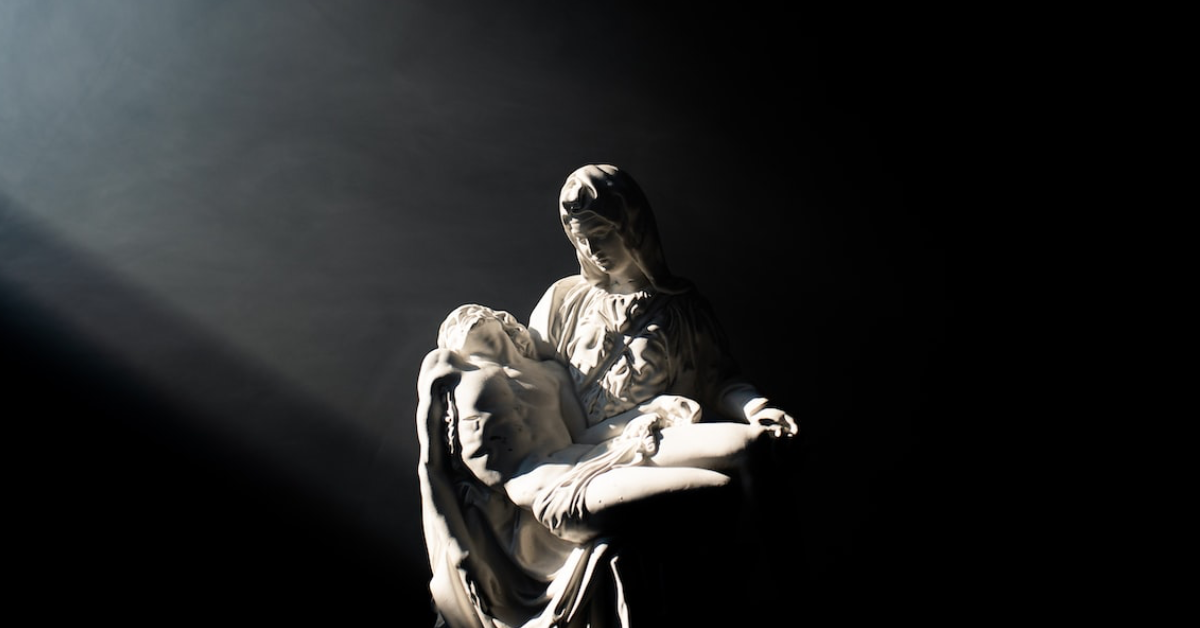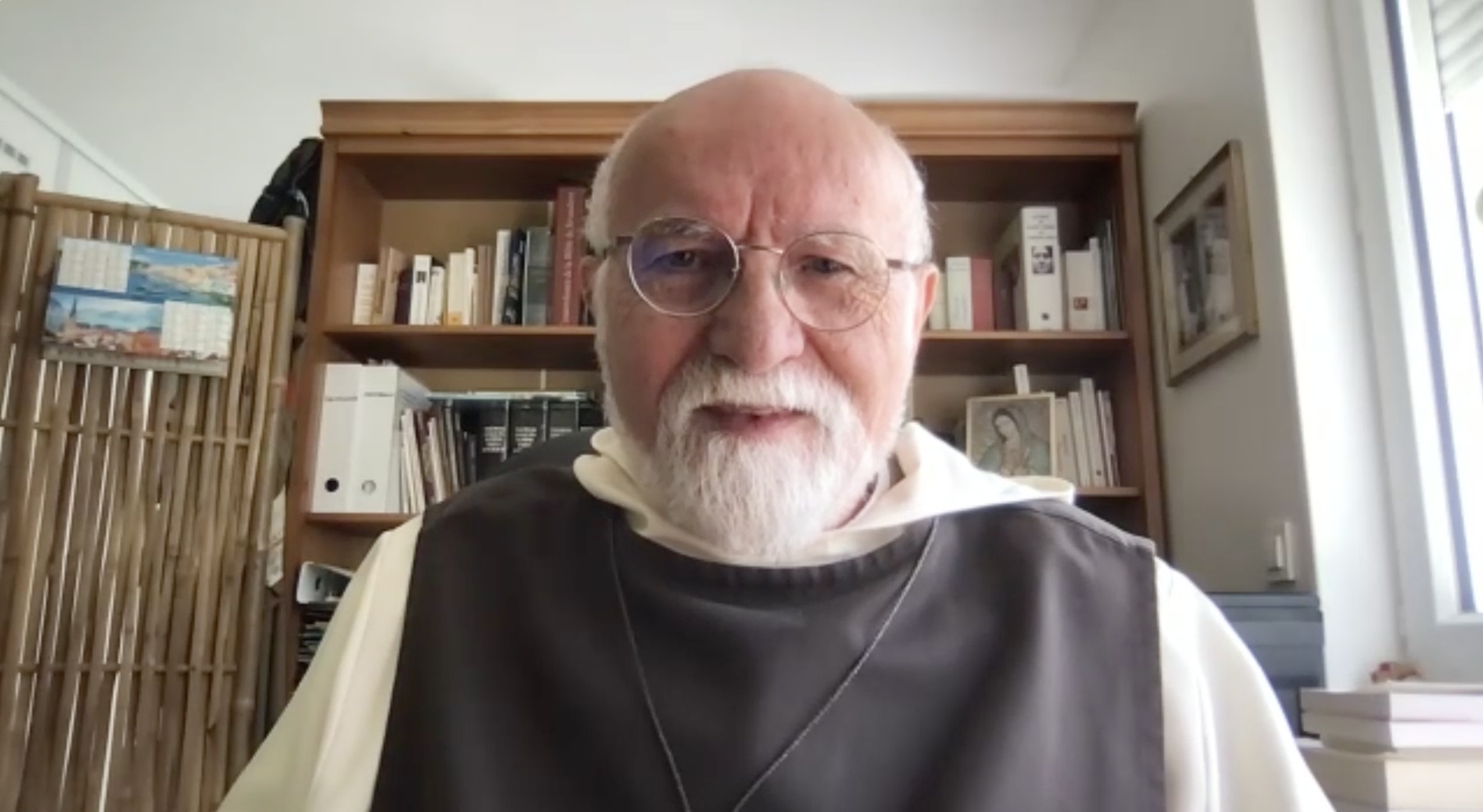
Everyone knows the “Hallelujah” chorus, but Handel’s Messiah is not the only classical masterpiece inspired by the story of Easter. The events of Holy Week (the seven days before Easter Sunday) have been the subject of thousands of musical works across the ages. In the history of the West, there is an especially rich repertoire from the late medieval and Renaissance periods. Music has been a profound means of reflection and worship for the Christian Church since its earliest days, and with that in mind, here is a list of seven pieces of classical music to refresh and inspire you as you reflect on the death and resurrection of Christ this Holy Week.
1) St. John Passion and St Matthew Passion – Bach
Bach has been acclaimed as one of the greatest classical composers of all time, and two of his most famous pieces are his St John Passion and St Matthew Passion. The St John Passion is the earlier of the two works, written in 1724. Bach sets the crucifixion accounts in John 18-19 (and Matthew 26-27 for the St Matthew Passion) to music, using diverse instruments, musical techniques and key signatures to depict the characters and emotions at work in the story. Both these Passion settings were written to be performed as part of a Lutheran church service, which is why they include a number of chorales that could be sung by the congregation as well.
2) Lamentations of Jeremiah the Prophet – Thomas Tallis
This work comes from the era of High Renaissance music, written by the 16th century English composer Thomas Tallis. Tallis sets the Latin text of verses in Jeremiah to music sung by just five voices—an alto, two tenors and two basses.
The Lamentations are hauntingly beautiful and expressive settings, showcasing the skill of an esteemed figure in the tradition of English choral music.
The finale of the piece has the five voices echoing and intensifying to end with the poignant words, “Jerusalem, turn again to the Lord your God!”
3) Parsifal – Richard Wagner
Apart from being Hitler’s favourite composer, Wagner is famous for his operas. The opera Parsifal was Wagner’s final composition and was first performed in 1882. However, because of its overtly Christian symbolism, Wagner saw it as a sacred work for the stage rather than an opera. The story is loosely based on the Arthurian legend of the knight Percival and his quest for the Holy Grail. Towards the end of the story, in Act III, Wagner composes what is known as the Good Friday Music, which contains evocative musical expressions of shimmering light, wonderment, repentance and beautiful transformation.
4) Seven Last Words from the Cross – James MacMillan
This cantata for choir and strings (‘cantata’ simply means a musical composition that is intended to be sung), premiered in 1994 on BBC Television. It is regarded as one of the great modern contributions to sacred music and dramatically recounts the last sentences uttered by Christ before he dies on the cross. The harsh, discordant notes of the first movement are unsettling to listen to, and the journey of the piece brings a vision of suffering, darkness and intense emotion, but also of profound beauty and hope. If you are willing to sit in the suffering this piece relates, it is incredibly moving.
5) Symphony No. 2 (‘Resurrection’) – Gustav Mahler
Mahler’s Resurrection Symphony is not for the faint-hearted! Written over 6 years and first performed in 1895, this work spans 5 movements and was written for a large orchestra. The arch of tension at the beginning of the symphony to resolution at the end beautifully conveys the composer’s view of life, death, and resurrection. It didn’t come easily though.
Mahler struggled to finish the final movement for many months. At the funeral of a close friend, however, Mahler heard Friedrich Klopstock’s poem “Die Auferstehung” (The Resurrection) read out, which contains the line, “Rise again, yes, you shall rise again / My dust”. Mahler later recounted to a friend how moved he was by this. ‘It struck me like lightning, this thing,’ he wrote, ‘and everything was revealed to me clear and plain.’ He took the first two verses of the poem and added more of his own to create the text of the finale that emphasises the beauty of resurrection. Halfway through the finale, the choir enters softly with the words: ‘Rise again! Yes, rise again will you, my dust, after a short rest!’
6) Miserere mei, Deus – Gregorio Allegri
This famous choral work by Allegri is among the most hauntingly beautiful pieces of sacred music in existence. Allegri uses the Latin text of Psalm 51, which begins “Have mercy on me, O God”.
The Miserere was likely composed in the 1630s during the reign of Pope Urban VIII. Allegri wrote it exclusively for Holy Week services in the Sistine Chapel, but it has gone on to become one of the most popular choral works performed and is used for Holy Week services across the world today. It employs two choirs, (a four-part choir and a five-part choir), which alternate in singing different verses and finally come together in a 9-part polyphony (polyphony means two or more independent melody lines sung simultaneously).
Look out for the famous “top C”, which appears in most versions of the Miserere performed today.
7) Four Penitential Motets – Francis Poulenc
The original title in French is Quatre motets pour un temps de pénitence. These are four sacred motets (‘motet’ is a broad term simply referring to a piece of music in several parts with words). Here, Latin texts for penitence are sung by four voices without accompaniment. Francis Poulenc wrote these Lenten songs in 1938–39. His life underwent a dramatic change after the death of a close friend in 1936, and much of his work after this point expresses a deep sense of religious devotion. His Penitential Motets are understandably restrained and sombre, given they focus on the darkness of sin, but also display dramatic moments of great beauty. With a running time of less than 15 minutes, these motets are an easy option for devotional listening in Holy Week.




